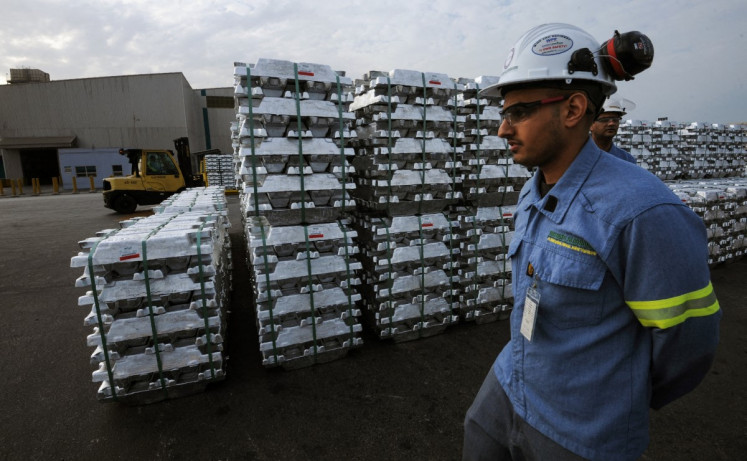Popular Reads
Top Results
Can't find what you're looking for?
View all search resultsPopular Reads
Top Results
Can't find what you're looking for?
View all search resultsIn for flexible labor market
Wage rises are not sustainable if revenues do not increase either by higher productivity or bigger market sales.
Change text size
Gift Premium Articles
to Anyone
T
rade union leaders should understandably be disillusioned by the 1.09 percent increase in provincial minimum labor wages set by the Manpower Ministry for 2022, as it is far below the range of the 7 to 10 percent rise they had demanded. But they should not lose sight of the big picture of the economy, which contracted by 2.1 percent last year and is expected to grow by only 3.2 to 3.5 percent this year amid continued uncertainties brought on by the pandemic.
Even though provincial and regency administrations are still authorized to increase the minimum wage under certain conditions to a higher rate than the national average fixed by the government, regional leaders are well-advised to realize that the tiny wage rise was set after several months of consultations within the national wage council and with the representatives of trade union federations and industrial associations.
We fully support the workers’ demand that the compulsory minimum wage support at least the basic cost of living for workers to sustain a decent livelihood, especially because the government decided in 2020 not to raise the minimum wage because of the devastating impacts of the health crisis.
But the blunt fact is that the pandemic has been damaging contact-sensitive sectors such as travel, transportation, manufacturing, trading and hospitality, causing massive worker layoffs. Many enterprises are able to continue operating only after the Financial Services Authority (OJK) extended to the end of March 2023 a loan restructuring relaxation facility as a countercyclical policy to cushion borrowers from the impact of the virus infection.
Wage rises are not sustainable if revenues do not increase either by higher productivity or bigger market sales. In fact, data showed that Indonesian minimum wages had increased at an 8 percent compound annual growth rate over five years to 2019 (before the pandemic) despite real gross domestic product (GDP) growth of only 5 percent.
When we talk about labor economics, we should not focus only on the minimum wage. Next year will usher in the full-fledged implementation of bold labor reforms under the 2020 Job Creation Law and Government Regulation No. 36/2021, which make the labor market more flexible in terms of a better, fixed formula for determining an annual minimum labor wage, contract workers and decreased severance costs.
But the new rules also provide unemployment insurance for workers and add the factors of household spending and unemployment rate into the calculation of wages.
A more flexible labor market is necessary to ensure that structural transformation strengthens economic growth, especially amid the expansion of the digital economy. We should note that only about 35 percent of the estimated 140 million workers would benefit from the mandated minimum wage because the other 65 percent remain trapped in the informal economy. Even though the core unemployment rate is estimated at only 7 percent, tens of millions are still under-employed. Too-rigid labor rules in the past have hindered investments to create jobs.
However, given the weak bargaining position of workers while employees’ and employers’ demands are conflicting in dealing with matters of job security, welfare and social protection, it is most imperative for the government to strengthen labor inspections to ensure that the new labor rules are properly enforced.











